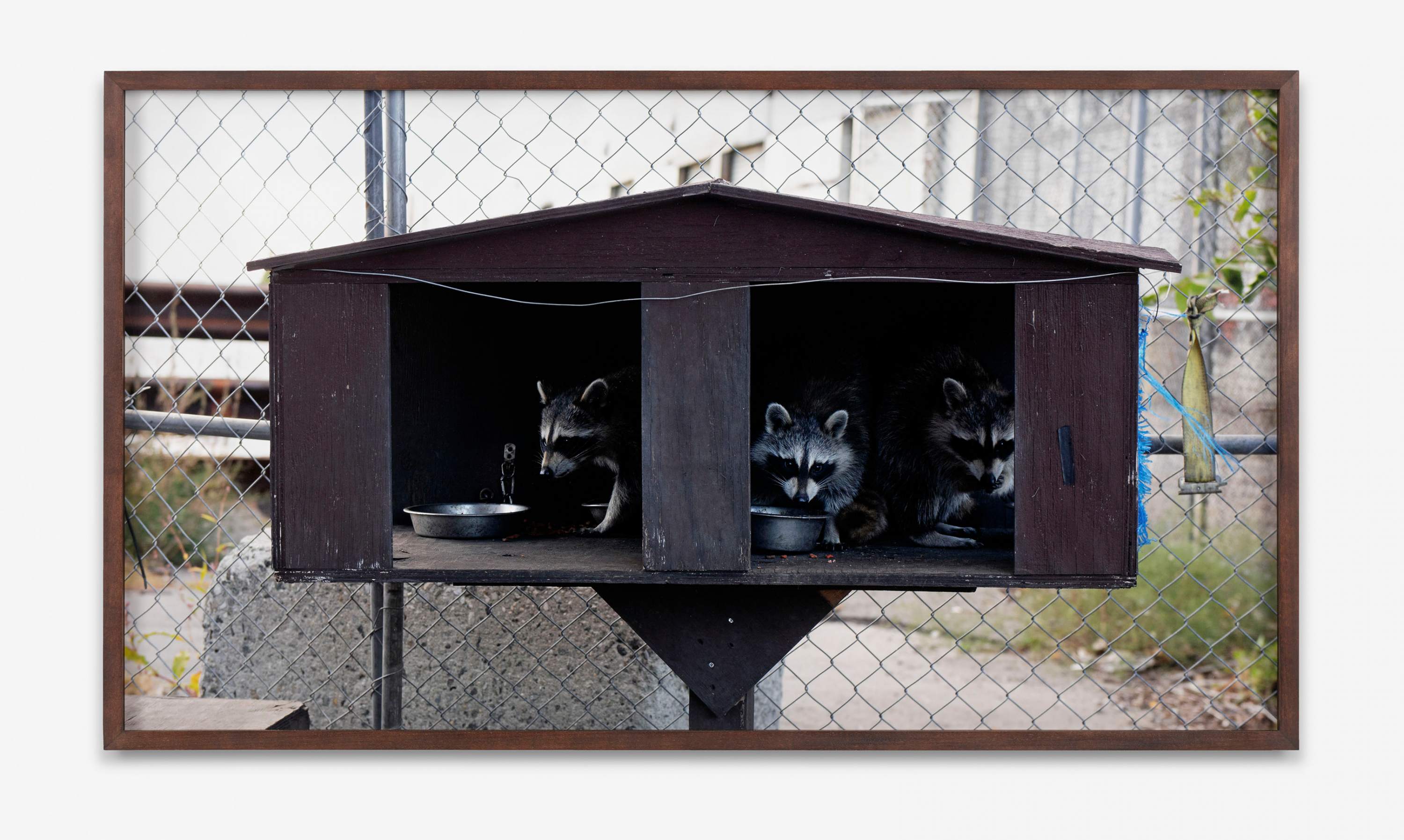Throughout New York City, styrofoam boxes, garbage bags, and loose construction materials are repurposed by individuals and neighborhood organizations to create shelters for a population of over 500,000 feral cats. Removed from most human traffic, feral cat colonies primarily exist on the edges of New York’s industrial waterfronts. Under the legal protections of the Mayor’s Alliance for NYC’s Animals and the non-profit organization Bidawee, registered colonies can receive supplies, veterinary care, and trap, neuter, and release (TNR) services directly from the city. However, these forms of state support are limited in scale. It largely falls on the ongoing work and donations of volunteers to maintain these colonies.
In recent years, New York’s waterfront has become a site of extensive real estate speculation. As a result of an influx in luxury development, many established cat colonies have been dismantled or displaced by the construction of new buildings. In this exhibition, five photographs document feral cat shelters across some of these neighborhoods. Each photograph depicts a shelter maintained by a nonprofit organization, neighborhood group, or an individual. Some of these shelters are registered, while others exist unofficially. Due to their lack of standardized design, the construction of these shelters varies from makeshift assemblages to prefabricated dwellings. Wedged into the gallery’s back window, a video installation displays a group of cats playing across from an active construction site.
For the duration of CAT, a public work entitled Kedi will be installed across Berlin. Donated by the government of Şişli, a municipality in Istanbul, Turkey, Kedi consists of a series of mass-produced prefabricated cat shelters. As an extension of Şişli's animal welfare program, these shelters will be freely distributed to individuals and organizations caring for feral animals in Berlin. In 2021, Turkey amended its animal protection laws, removing the terms "ornamental," "house," and "garden" from the legal status of cats. Under these new provisions, cats are now legally distinct from private property and hold greater protection from human harm and abuse. In contrast to cities like New York and Berlin, care for feral animals in Istanbul is shared collectively between the state, neighbors, and passersby. Beyond metaphor or analogy, these legislations are prefaced on urbanism’s reliance on distancing itself from feral life.
If you are interested in receiving a shelter, please email: info@noahklink.com. Shelters will only be provided to those actively caring for animals in Berlin or committed to the ongoing stewardship of a new shelter. Up to two shelters can be received per request.
Exhibition Text















